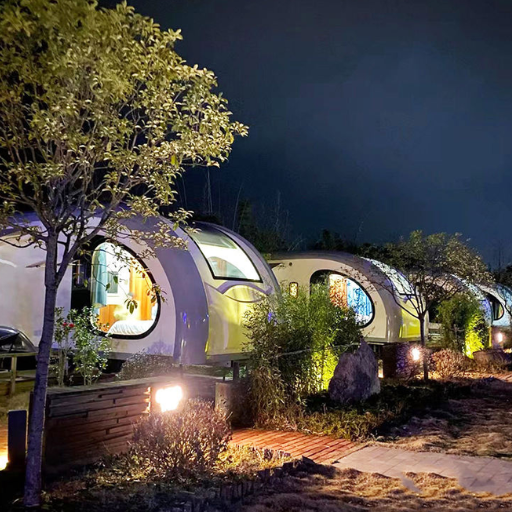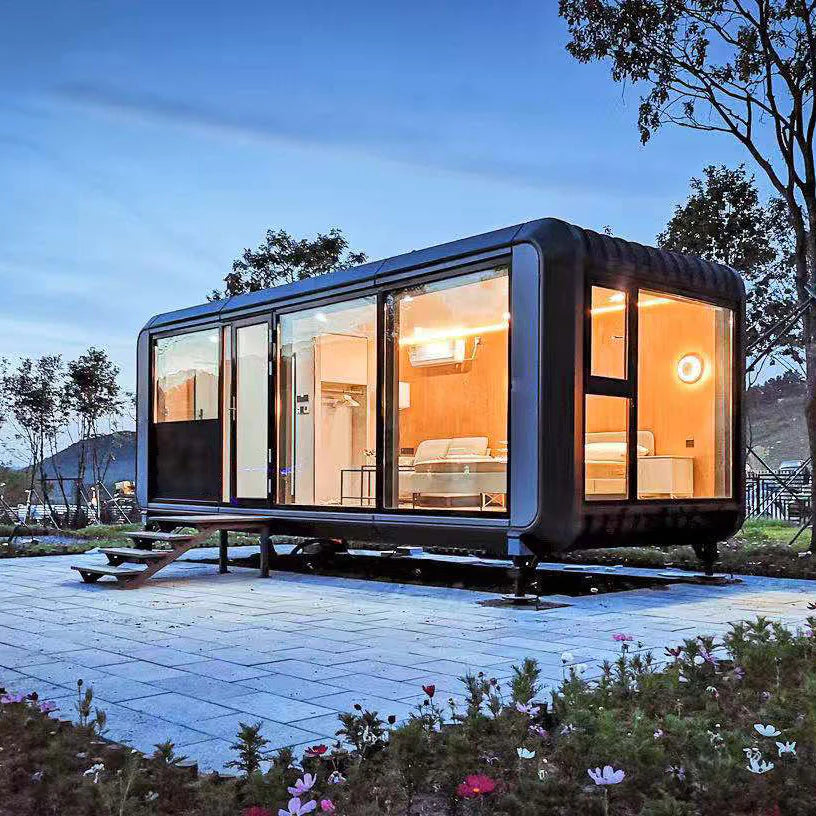Why Modular Homes Are the Future of Sustainable Living
Modular homes are increasingly acknowledged as a pivotal option for lasting living, providing a mix of efficiency, cost-effectiveness, and ecological advantages. Their construction in controlled settings dramatically lowers waste and boosts precision, while the capacity for including innovative energy-efficient systems positions them as a forward-thinking option in real estate. The versatility of modular styles enables for the assimilation of sustainable modern technologies and products customized to individual requirements. As we browse the challenges of urbanization and ecological sustainability, one have to consider exactly how these homes might redefine our approach to living spaces.
Ecological Benefits of Modular Houses
The environmental benefits of modular homes represent a significant action toward lasting living. These homes are constructed in controlled factory setups, which substantially reduces waste produced throughout the building process. By enhancing products and decreasing excess, modular building and construction adds to a more reliable use of sources contrasted to standard building techniques.
Furthermore, modular homes are commonly made with energy efficiency in mind. Many include sophisticated insulation methods, energy-efficient home windows, and lasting materials, adding to reduced power intake. This can lead to decreased greenhouse gas emissions over the life expectancy of the home, boosting its total environmental profile.
The capability to transportation and put together modular components on-site additionally decreases the carbon footprint connected with construction logistics. Many modular homes are constructed to be adaptable and quickly upgradeable, enabling homeowners to implement lasting technologies, such as solar panels and energy-efficient heating systems, over time.
Ultimately, the environmental advantages of modular homes not just promote sustainable living but also urge an even more liable technique to real estate development, lining up with worldwide initiatives to deal with environment adjustment and preserve natural deposits for future generations.
Cost-Effectiveness and Cost
Building a home frequently stands for one of the largest economic investments people make in their lifetime, and modular homes offer a compelling solution for those seeking cost-effectiveness and affordability. One of the main benefits of modular homes is their lower construction expenses compared to standard site-built homes. The streamlined production procedure permits for substantial savings on labor and products, which translates to reduce prices for consumers.
In addition, modular homes normally have shorter construction timelines. This not only reduces expenditures associated with funding and insurance but also alleviates the dangers related to inflation and varying market conditions. Several purchasers discover that modular homes can be customized to fit their spending plans without giving up quality or design.
In addition, power effectiveness is usually built right into the style of modular homes, leading to minimized utility expenses in time. Many manufacturers focus on sustainable materials and practices, better improving the lasting financial practicality of these homes. Overall, the mix of preliminary cost savings, rapid building, and recurring energy effectiveness makes modular homes an attractive choice for those wanting to spend in sustainable living without breaking the Resources financial institution.
Efficiency in Building And Construction
Modular homes not just offer economic advantages yet also succeed in building and construction effectiveness. The modular building my review here procedure entails the simultaneous building of components in a factory setup while site prep work takes place simultaneously. This parallel technique significantly minimizes the total timeline from fertilization to completion, commonly cutting building time by approximately half contrasted to traditional approaches.
In addition, factory-controlled settings boost quality control. By using precision manufacturing methods, modular homes are constructed to precise requirements, lessening waste and errors. This consistency not only causes a better product however also contributes to lasting practices by reducing product waste throughout building and construction.
Furthermore, the use of modern innovation and automation in the production procedure permits for quicker assembly and decreased labor prices. As soon as the components are moved to the website, they can be successfully assembled, better accelerating the timeline. This streamlined procedure is not only useful for building contractors but likewise minimizes interruptions to the surrounding atmosphere during building and construction.
Modification and Style Adaptability
An impressive selection of modification options identifies modular homes, allowing house owners to customize their home to fulfill details needs and preferences. This layout versatility is a characteristic of modular construction, allowing clients to select whatever from layout and area layouts to components and finishes. Unlike standard homes, modular layouts assist in a joint technique where home builders and architects function closely with property owners, making sure that each element straightens with visual wishes and specific way of livings.
Furthermore, modular homes can be easily reconfigured or increased, accommodating changing household dynamics or evolving personal description preferences. This versatility not only enhances the home's functionality however likewise adds to long-term sustainability, as home owners can customize their areas as opposed to look for new real estate solutions.

Future Fads in Sustainable Housing
Arising fads in lasting housing are reshaping the landscape of domestic construction, highlighting green methods and ingenious modern technologies. One considerable trend is the combination of smart home innovation, which improves energy performance via automated systems that optimize and keep an eye on power usage. This not only reduces energy costs but additionally contributes to a reduced carbon footprint.
In addition, using sustainable products is coming to be progressively common. Contractors are choosing recycled, locally sourced, or quickly eco-friendly products, which minimize environmental effect and assistance regional economic climates. Modular homes are getting popularity for their minimized waste throughout building and construction and their flexibility to different terrains and climates.
One more pattern is the unification of eco-friendly roof coverings and living wall surfaces, which improve air quality and offer natural insulation. These functions also promote biodiversity in urban areas.
Conclusion
In verdict, modular homes arise as a critical remedy for lasting living, using significant ecological benefits with minimized waste and energy performance. As trends in lasting housing develop, modular homes are positioned to play a vital role in advertising environmentally friendly living methods for future generations.
Building a home commonly represents one of the biggest monetary investments individuals make in their life time, and modular homes provide an engaging solution for those looking for cost-effectiveness and cost. One of the key advantages of modular homes is their reduced construction costs contrasted to conventional site-built homes. On the whole, the combination of preliminary cost financial savings, fast building and construction, and ongoing energy performance makes modular homes an attractive alternative for those looking to invest in sustainable living without damaging the financial institution.
Eventually, the customization and style adaptability offered by modular homes guarantee that they are not just structures, but customized refuges that mirror the unique identifications of their residents while advertising lasting living techniques.
